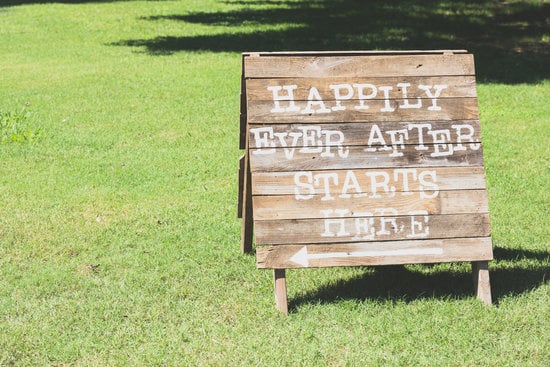When it comes to attending weddings, one of the age-old debates revolves around the question: should you wear white? The tradition of wearing white at weddings holds significant cultural and symbolic meanings, often associated with purity, innocence, and new beginnings. In this article, we will delve into the history, etiquette, and modern perspectives surrounding the choice of attire for wedding guests.
The practice of wearing white at weddings dates back centuries and has roots in various cultural and religious customs. Understanding the historical background behind this tradition provides insights into why it continues to hold such importance in today’s society. From ancient rituals to royal influences, the color white has been deeply intertwined with wedding ceremonies throughout history.
Etiquette plays a crucial role in determining what is considered appropriate attire for guests attending a wedding. Delving into traditional beliefs and superstitions related to wearing white sheds light on why some may view it as taboo or disrespectful to don this color on such a special occasion. As fashion trends evolve, so do attitudes towards wedding attire, leading to a shift in how guests approach their outfit choices for these joyous celebrations.
Historical Background
The tradition of wearing white at weddings has a rich historical background that dates back centuries. In Western culture, the practice of brides wearing white on their wedding day can be traced back to Queen Victoria’s marriage to Prince Albert in 1840.
Before this royal wedding, brides would wear a variety of colors for their nuptials, but Queen Victoria’s choice of a white gown popularized the trend. White was seen as a symbol of purity and innocence, fitting for a bride entering into matrimony.
Historically, white has also held significance in various cultural and religious wedding traditions around the world. In some Eastern cultures, such as India, white symbolizes mourning and is therefore avoided as a color for wedding attire.
On the other hand, in many Western societies, white is associated with new beginnings and fresh starts, making it an ideal choice for brides on their special day. The cultural connotations attached to white attire showcase how deeply rooted this tradition is in different parts of the world.
When considering whether to wear white at a wedding as a guest, it is essential to understand these historical and cultural contexts. While it may seem like a harmless choice to don a white outfit as a guest, it can unintentionally overshadow the bride on her big day. To navigate this etiquette minefield gracefully, guests should opt for colors other than white when attending weddings. Below are some alternative options for wedding guest attire:
- Pastel hues such as blush pink or sky blue
- Jewel tones like emerald green or sapphire blue
- Floral prints or patterns
By choosing colorful and festive outfits that honor the celebratory nature of weddings without encroaching on the bride’s spotlight, guests can show their respect for tradition while looking stylish and appropriate for the occasion.
Etiquette and Traditions
Wearing white to a wedding has long been a contentious issue, with many debating whether it is appropriate for guests to don the color reserved traditionally for the bride. When considering what to wear to a wedding, it is essential to be mindful of etiquette and traditions surrounding the event. Here are some guidelines to help you navigate this delicate topic:
- First and foremost, it is generally considered in poor taste for guests to wear white to a wedding. This color is traditionally reserved for the bride as a symbol of purity and innocence. Therefore, as a guest, it is crucial to respect this tradition and choose attire that does not overshadow the bride’s special day.
- Opting for neutral colors such as pastels, earth tones, or jewel tones can be a safe choice when attending a wedding. These hues are both elegant and appropriate for the occasion without risking any unintentional breaches of etiquette.
- When in doubt about whether an outfit is suitable for a wedding, it is always wise to consult the dress code specified on the invitation. If no dress code is indicated, consider reaching out to the couple or a member of the bridal party for guidance. This way, you can ensure that your attire aligns with the overall theme and formality of the event.
Modern Perspectives
The tradition of wearing white at weddings has a long history rooted in cultural and religious customs. In Western culture, white is often associated with purity, innocence, and new beginnings, making it a popular choice for brides on their wedding day. However, the idea of guests wearing white to a wedding can stir up controversy.
Traditionally, guests should refrain from wearing white in order not to overshadow the bride or be mistaken for her. It is essential to respect the bride’s choice to stand out in her white gown and avoid causing any unnecessary distractions.
In recent years, modern perspectives on wearing white at weddings have become more lenient. Some brides no longer adhere strictly to the rule of being the only one in white, allowing their guests to wear this color as well.
Additionally, some couples opt for non-traditional wedding ceremonies where guests are encouraged to express their individual style through their attire, including wearing white if they choose to do so. Ultimately, the decision of whether you should wear white at a wedding depends on the couple’s preferences and the overall theme or dress code of the event.
When attending a wedding as a guest, it is always best to consult with the couple or check the invitation for any specified dress code guidelines. If there are no explicit instructions regarding attire, it is advisable to steer clear of wearing white out of respect for traditional customs and etiquette.
Should you still wish to incorporate touches of white into your outfit for a wedding, consider opting for off-white shades or pairing a colorful ensemble with subtle white accents to strike a balance between style and propriety.
| White Attire at Weddings | Recommendations |
|---|---|
| Guests wearing white | Avoid overshadowing the bride |
| Modern perspectives | Couples may allow guests to wear white |
| Etiquette advice | Consult dress code guidelines if unsure |
The Bride’s Perspective
Why Brides Traditionally Wear White
The tradition of brides wearing white on their wedding day dates back to the Victorian era when Queen Victoria wore a white gown for her own wedding. White has since been associated with purity, innocence, and new beginnings, making it a popular choice for brides around the world. The color white symbolizes the bride’s commitment to her partner and signifies a fresh start in their life together.
The Impact of Guests Wearing White
For brides, seeing guests wearing white at their wedding can evoke mixed emotions. While some may not mind the presence of other individuals donning white attire, others may feel overshadowed or upstaged by guests wearing the same color as them. It is important for guests to consider the bride’s feelings and choose attire that respects her role as the focal point of the event.
Guidelines for Wedding Attire
As a guest, it is generally advisable to avoid wearing white to a wedding out of respect for the bride’s special day. Opting for colors like pastels, jewel tones, or floral patterns can be a safe choice that ensures you won’t be mistaken for the bride. Ultimately, attending a wedding is about celebrating the couple’s love and union, so choosing attire that complements but does not compete with the bride should be the primary focus.
Guest Etiquette
When attending a wedding as a guest, one of the most common dilemmas is deciding what to wear. The question of whether you should wear white at a wedding often arises, causing confusion and concern among attendees. While it is essential to look your best and feel confident in your outfit choice, there are some general guidelines to follow when it comes to wearing white to someone else’s special day.
Traditionally, wearing white to a wedding has been considered a major fashion faux pas, as it was believed that this color should be reserved exclusively for the bride. The idea behind this etiquette rule is to ensure that the bride stands out on her big day and remains the center of attention. By not wearing white as a guest, you show respect for the bride and acknowledge her significance in the event.
In today’s modern world, however, attitudes towards wedding attire have become more flexible, allowing guests more freedom in their fashion choices. While some brides may not mind if a guest wears white to their wedding, it is still generally best to err on the side of caution and choose another color for your attire.
Opting for pastel shades, floral patterns, or vibrant hues can be excellent alternatives that show thoughtfulness and consideration towards the bride and groom on their special day. Ultimately, when deciding what to wear as a guest at a wedding, it is crucial to prioritize respect for the couple getting married and make choices that reflect this sentiment.
Real-Life Scenarios
Unexpected Wardrobe Choices
In real-life scenarios, the debate around whether guests should wear white at a wedding often comes to the forefront when unexpected wardrobe choices are made. One common scenario involves a guest unknowingly showing up in a white dress that closely resembles a bridal gown. This can lead to confusion and potentially steal the spotlight from the bride, causing unnecessary tension on what should be a joyous occasion.
The Bride’s Reaction
The reaction of the bride in such situations can vary greatly. Some brides may be understanding and brush off the mistake, focusing instead on the celebration of their special day. However, other brides may feel uncomfortable or even upset by a guest wearing white, feeling that it undermines their own choice to wear the traditional color. It is important for guests to consider and respect the bride’s feelings when deciding on their attire for a wedding.
Social Media Fallout
With the prevalence of social media today, any missteps in wedding attire can quickly escalate into viral moments. Guests who wear white at a wedding risk being called out on social media platforms for their fashion faux pas, leading to embarrassment and potential backlash. Real-life scenarios have shown that even innocent mistakes in wardrobe selection can have lasting implications in the digital age, underscoring the importance of thoughtful attire choices when attending weddings.
Conclusion
In conclusion, the debate around whether guests should wear white at a wedding is a nuanced one that encompasses tradition, etiquette, and personal beliefs. The tradition of wearing white at weddings dates back to Victorian times when Queen Victoria popularized the color for brides. White has since been symbolized with purity and innocence, making it an obvious choice for brides on their special day. However, the question remains: should guests also don this traditional hue?
While some may argue that wearing white as a guest to a wedding is a breach of etiquette or an attempt to upstage the bride, modern perspectives on wedding attire have become more flexible. With fashion trends continually evolving, guests now have a variety of colors and styles to choose from that can be just as stylish and appropriate for a wedding celebration.
Ultimately, the decision of whether or not to wear white as a guest at a wedding boils down to respect for the couple getting married and their wishes.
In light of the various viewpoints presented throughout this discussion, it is safe to say that while tradition holds significance in weddings, personal preferences and cultural norms should also be taken into consideration when choosing attire for such occasions. Guests should prioritize showing support and respect for the couple’s union by selecting outfits that align with the overall aesthetic of the wedding while maintaining individual style choices.
So, should you wear white at a wedding? The answer ultimately lies in being mindful of traditions, respecting etiquette guidelines, and embracing modern interpretations of wedding fashion.
Frequently Asked Questions
Is It Appropriate to Wear White to a Wedding?
It can be considered inappropriate to wear white to a wedding, as it is traditionally reserved for the bride. White is often seen as a symbol of purity and innocence, so wearing it may take attention away from the bride on her special day.
What Are the Rules About Wearing White?
The general rule when it comes to wearing white to a wedding is to avoid it altogether if you are unsure. If the couple has specified a dress code that includes white or if they have given their blessing for guests to wear white, then it may be acceptable. Otherwise, it’s best to steer clear of white attire.
How to Wear White to a Wedding Without Offending the Bride?
If you still want to wear white to a wedding without offending the bride, consider opting for an outfit that has subtle hints of white or pair your white piece with bold, colorful accessories. Another option is to choose off-white or cream-colored clothing instead of pure white, which may be less likely to draw attention away from the bride.
Additionally, communicating with the couple beforehand about your outfit choice can help avoid any potential issues on the big day.

I have been involved in marriages for over 20 years helping couples and singles understand more about them.





